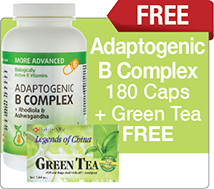- 20 Billion CFU
- Probiotic Blend
- 7.27 Billion CFU
- Lactobacillus rhamnosus (Lr-32)
- 3.82 Billion CFU
- Lactobacillus rhamnosus (HN001)
- 1.45 Billion CFU
- Lactobacillus acidophilus (La-14)
- 1.09 Billion CFU
- Lactobacillus plantarum (Lp-115)
- 0.61 Billion CFU
- Lactobacillus paracasei (Lpc-37)
- 0.12 Billion CFU
- Lactobacillus brevis (Lbr-35)
- 0.03 Billion CFU
- Lactobacillus delbrueckii subsp. bulgaricus (Lb-87)
- 0.18 Billion CFU
- Lactobacillus casei (Lc-11)
- 0.18 Billion CFU
- Lactobacillus gasseri (Lg-36)
- 0.07 Billion CFU
- Lactobacillus reuteri (1E1)
- 0.18 Billion CFU
- Lactobacillus salivarius (Ls-33)
- 1.14 Billion CFU
- Bifidobacterium longum subsp. longum (Bl-05)
- 0.45 Billion CFU
- Bifidobacterium longum subsp. infantis (Bl-26)
- 0.45 Billion CFU
- Bifidobacterium bifidum (Bb-06)
- 1.14 Billion CFU
- Bifidobacterium breve (Bb-03)
- 1.82 Billion CFU
- Bifidobacterium animalis subsp. lactis (Bl-04)
Organic acacia gum, organic potato starch (tuber), non-GMO vegetable hypromellose (capsule)
Format
 Veggie Caps
Veggie Caps
30vcaps
Dosage
Take 1 capsule per day
Important Information
Contains no carriers, fillers, artificial colors or flavors
- Provides immune support for mom and baby
- Supports healthy digestion
- Use during pregnancy and lactation
- Once daily capsule
- Shelf stable
Related Videos
No Related VideosArticles by a naturopathic doctor.
Garden of Life brings you trusted products like Raw Organic Protein, Vitamin Code, MyKind Organics, Dr. Formulated Probiotics and Collagen. Certified Organic and non-GMO vitamins and supplements, Graden of Life always starts with real foods. These foods provide their formulas with the power to be their best.
PREGNANCY
Pregnancy can be scary enough without ALL the varying information about what foods, herbs and substances we are NOT allowed to eat, what activities we shouldn't do, how we should and shouldn't sleep, the list goes on...
It's stressful (but wait...stress isn't allowed either!) This is such a special moment in your life, make sure to take a step back and simply do what feels most right for you... IN MODERATION! Moderation is the key to a healthy pregnancy, a healthy baby and a healthy and happy family.
Some common symptoms associated with pregnancy in addition to a missed period are:
- Tender and swollen breasts
- Nausea with or without vomiting
- Increased urination
- Fatigue
- Food cravings and distaste
- Slight bleeding
- Cramping
- Mood swings
- Dizziness
- Constipation
Be sure to speak with your doctor to confirm if you are really pregnant simply because a lot of these symptoms are also associated with other medical conditions.
For many women, nutritional interventions and supplementation in preparation for pregnancy and childbirth, can begin a year or more before conception. In fact, pre conceptual preparation dates back centuries. Pre conceptual exercise, following a balanced diet, ensuring proper relaxation and a healthy mindset...These were considered necessary measures in order to cleanse and tonify the body and cultivate optimal health for the child.
Nowadays, many argue that the foods we eat do not supply us with the therapeutic range of nutrients that they once did, and due to a lack of nutrients in the typical 'western diet' of today, supplementation with a prenatal vitamin is almost always recommended. During pregnancy, childbirth and lactation, nutritional requirements do increase, and thus additional supplementation can mean the difference between infertility, low birth weight infants, physical and mental anomalies (all associated with poor maternal nutrition) and the birth of a healthy baby.
Caloric intake does not necessarily need to increase while pregnant, depending on the mother's weight and caloric consumption at conception. We now know that the idea of 'eating for two' is hardly accurate. It is generally well accepted that a diet of about 2300 calories/day will promote healthy, baby related weight gain. For athletes or women who are generally eating a higher daily caloric intake, simply aim to stay at the consumption that is 'normal' for you pre-baby. A healthy weight gain, if you were considered in the 'normal' weight range post conception, is 30-37 lbs. That being said, intake of certain food groups (while avoidance or caution with others) is recommended. Protein requirements, during pregnancy, increase substantially. Low protein diets have been associated with higher risk of preeclampsia. Aiming to get 70-80 grams of protein a day is a good start. The consumption of dairy products during pregnancy is a little controversial. In general, it is never a good idea to eat a lot of one food or food group. A well rounded diet is one of moderation. Ice cream and cheese, although they are delicious, best not be consumed on a daily basis.
Folic acid (Folate) and Calcium are the only vitamins/minerals whose requirements double during pregnancy. Deficiencies in folic acid have been linked to both low birth weight infants and neural tube defects. Supplementation has been shown to effectively prevent these issues in the majority of high risk pregnancies. Folic acid can be found in green leafy vegetables, nuts, whole grains, liver, parsley and dandelion. Low dietary intake of calcium has been shown to correlate with incidence of preeclampsia, characterized by high blood pressure, swelling, and/or protein in the urine. Preeclampsia poses a significant risk for pre-term delivery and can threaten the life of the mother, and cause much damage to the fetus. Calcium has also been shown effective in decreasing leg cramps, common in late pregnancy. Calcium is said to be better absorbed during pregnancy, that being said, some forms of calcium tend to cause constipation. Some high (and dairy free) sources of calcium include dark leafy green vegetables, asparagus, pumpkin seeds, fresh parsley, raspberry leaf and nettle infusions/teas.
Other essential nutrients that you want to make sure are present in your prenatal vitamin (or diet, if you are choosing to increase your intake of via diet) are: B vitamins (B1, B2, B3, B12 and B6), Vitamin C, Vitamin D3, Vitamin E, Vitamin K, Iron, Magnesium, Potassium, and Zinc). If hemoglobin tests suggest deficiency, iron supplementation may need to go beyond that supplied by your prenatal vitamin.
Separate and increased levels of B6 may be indicated for the treatment of nausea and morning sickness, especially in cases that include substantial vomiting. It is only recommended to use higher doses during the first trimester, as higher doses can lead to decreased breast milk production, and can cause the infant to experience withdrawal seizures, if still at high doses close to delivery. There is some research to suggest that given during labour, B6 increases oxygen carrying capacity of the blood that supplies the fetus. Ginger is another herb that is great for morning sickness and nausea. Just peel a small chunk and let it steep in hot water. Drink as needed.
Probiotics. There is some evidence to suggest that probiotic intake during pregnancy can prevent urogenital infections common to pregnancy (ie; bladder infection/cystitis). There are also studies to suggest that the use of probiotics, more specifically lactobaccillus rhamnosus, may help to prevent group B strep. infections in expecting mothers. Probiotic supplementation during pregnancy and continued in infancy can also decrease incidence of infantile atopic dermatitis. Additionally, probiotics can help to relieve constipation and decrease incidence of heartburn and gas, some of the common and less enjoyable side effects of being 'with child'.
DHA and EPA from Fish Oils. Studies confirm the importance of DHA for healthy brain development. DHA supplementation in pregnancy has been correlated with better hand eye coordination, IQ test scores, motor development and attention span in infancy and childhood. DHA supplementation during pregnancy and while breastfeeding has also been linked to higher birth weight and optimal visual development. There are no official requirements for DHA in pregnancy, although research is suggesting a minimum of 200 -300 mg of DHA/day. This amount can also be obtained easily through incorporating fish into the diet. Look for organic, wild salmon, tilapia, freshwater trout and other fish ranked low in contaminants like mercury.
There is HUGE list of herbs that are contraindicated in pregnancy, so rather than go through them all, here are a few that are not only safe, but effective for a variety of pregnancy related issues. Most of these herbs are most commonly recommended via infusion/tea. Red raspberry tea has been shown to be safe and effective throughout pregnancy and breastfeeding. It tonifies the uterus, increases the flow of milk, and is said to restore the reproductive system following childbirth. It is also rich in Iron, and vitamins C and E. Dandelion leaf (and root) tea is a potent source of vitamins and minerals, as well as helping to stimulate bile flow, helping to cleanse and tone the liver and acting as a mild diuretic. It can also help to alleviate nausea and indigestion. Nettle is high in calcium and iron, among many other vitamins and minerals. It makes a great during pregnancy, as it can help to improve energy, dilate the blood vessels, reduce varicose veins and alleviate leg cramps. Instead of a tea, try adding the leaves to your salads!
Be sure to keep active during your pregnancy. If you were active before there is no reason to stop after conception - as long as what you are doing is safe and still feels comfortable. Contact activities, such as kick boxing, or self defence classes, or games like football where there is a chance of being hit should be avoided, and sports with a risk of falling like skiing should only be done with extreme caution. Instead try swimming, walking, or yoga. As your bump gets bigger you will have to slow down your routine but try and stay active as long as you can. Be sure to keep yourself hydrated as well. Drink plenty of filtered water.
The best advice I've ever heard? Sit back, relax and enjoy this special time in your life!
- Reviews
- POST A NEW REVIEW





















